#the book of were-wolves
Explore tagged Tumblr posts
Text
Werewolf Fact #71 - Book Review: Sabine Baring-Gould's The Book of Werewolves
While it may not be a "werewolf fact" of the traditional nature, it's very important when studying folklore to know and understand one's sources.
One of the very best sources for werewolf folklore - and indeed other folklore and mythology besides - is Sabine Baring-Gould's The Book of Werewolves (or The Book of Were-Wolves as he called it), written in 1865. However, like any academic/rhetorical source, it shouldn't be taken at face value. Let's dive into why it's such a useful source - and why you shouldn't always take to heart everything Baring-Gould attempts to assert.
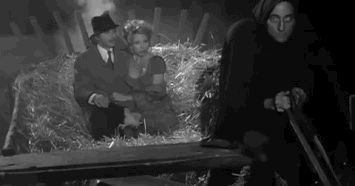
Already a scholar, Baring-Gould was a skeptical guy. It all began when, during his travels, Baring-Gould encountered several people terrified of a werewolf. He was baffled they truly believed in such a thing, and that it would stop them from wanting to traverse a road at night...
“If the loup-garou were only a natural wolf, why then, you see”—the mayor cleared his throat—“you see we should think nothing of it; but, M. le Curé, it is a fiend, a worse than fiend, a man-fiend,—a worse than man-fiend, a man-wolf-fiend.”
Baring-Gould, not intimidated, walked the road alone. However, along the way, the words of the others got to him, and he found himself frightened. The manner in which such preposterous superstition (naturally, he wasn't exactly a believer) would actually make him afraid at all made him very curious about such things and why people would believe in them...
This was my first introduction to werewolves, and the circumstance of finding the superstition still so prevalent, first gave me the idea of investigating the history and the habits of these mythical creatures. I must acknowledge that I have been quite unsuccessful in obtaining a specimen of the animal, but I have found its traces in all directions. And just as the palæontologist has constructed the labyrinthodon out of its foot-prints in marl, and one splinter of bone, so may this monograph be complete and accurate, although I have no chained werewolf before me which I may sketch and describe from the life. The traces left are indeed numerous enough, and though perhaps like the dodo or the dinormis, the werewolf may have become extinct in our age, yet he has left his stamp on classic antiquity, he has trodden deep in Northern snows, has ridden rough-shod over the mediævals, and has howled amongst Oriental sepulchres. He belonged to a bad breed, and we are quite content to be freed from him and his kindred, the vampire and the ghoul. Yet who knows! We may be a little too hasty in concluding that he is extinct. He may still prowl in Abyssinian forests, range still over Asiatic steppes, and be found howling dismally in some padded room of a Hanwell or a Bedlam.
Baring-Gould has his biases, but he also has an open mind about some topics, even if he's shut tighter than a bear trap on others, especially where anything scientific is concerned, as he was a big believer in the science of his time (not all of which is applicable to today). He's a complicated bag of tricks, and reading his work is quite an experience.
Whatever his biases and whatever one might think of his occasionally very judgmental and overly authoritarian words (i.e., he can sometimes think he knows better than everyone, including the people who actually lived during the time periods he's discussing), he is nothing short of phenomenal at his work of gathering and examining sources... even if he isn't always right. He contradicts his own research at least once, namely in relation to berserkers, but I won't go into all that (unless you read my edition of his book, of course; I discuss it extensively there).
He even spins some of his sources into thrilling tales. He honestly isn't bad at narration, able to paint an impressive and thrilling picture when retelling various werewolf (and other) legends...
But when dusk settled down over the forest, and one by one the windows of the castle became illumined, peasants would point to one casement high up in an isolated tower, from which a clear light streamed through the gloom of night; they spoke of a fierce red glare which irradiated the chamber at times, and of sharp cries ringing out of it, through the hushed woods, to be answered only by the howl of the wolf as it rose from its lair to begin its nocturnal rambles.
Something to note with Baring-Gould is that some of his sources are actually no longer with us. They did clearly exist, and he could access them during his own time, but they've since been lost, especially in such original formats (or they might be gone altogether). This is just another reason why Baring-Gould's work is irreplaceable as a source for many, many fields, not just werewolf studies. He cites and discusses works about many kinds of folklore, mythology, and even history, and he even provided the first English translation of the trail of Giles de Rais, a famous killer (and basis for the fairy tale Bluebeard). It's a fascinating read, even if you're just there for general folklore and mythology or if you're there specifically for werewolves or, broader spectrum, all manner of shapeshifters - he even talks a little bit about dragons!
However, when reading, bear in mind that Baring-Gould is not without his biases, as I mentioned before. He can be very judgmental of other scholars, especially from the past, but that isn't exactly uncommon even in modern scholarship. It's easy enough to read around, as long as you don't take everything he writes as fact. No scholar is perfect, no matter how impressive their work is, and that certainly includes Baring-Gould. He also approaches his work with werewolves specifically with the determination to relate them to "madmen" and serial killers, which is a consistent theme throughout the book. He will discuss werewolf legends and detail them well, but toward the end of each section, when providing his own assessment, he will generally offer how such things could be rationalized in his own mind. In doing so, of course, he does offer interesting discussion and food for thought, regardless of whether you agree with him (I agree with him at times but can also find him very disagreeable; it's like that with most everything one reads, so no shocker there). And, of course, his work even if only used for informational purposes is still impressive.
Biases is no reason to pass on what might be the best single source on these many topics. Besides, reading around potential biases is a skill everyone should learn.
One of his biggest downsides is that he doesn't provide English translations of all his quoted passages and sources. This was a problem in the original publication from the 1800s, and it continues into today with nearly all editions...
However, if you do want translations of nearly all of his quoted passages from various sources (as well as extensive annotations discussing werewolf studies, mythology, and more, and putting his scholarship into a modern context and even pointing out his errors, such as when he contradicts himself), then you need to see my edition of his work!
I personally translated and annotated The Book of Werewolves this year, and it's now available for purchase both through Amazon.com and my personal website, with a cover that's a different take on the book's original 1865 release...

Be sure to check it out at Amazon.com and my personal website!
If you buy it directly from me, I'll sign it for you, too. You can also download an ebook, if you prefer.
I assure you it's the best edition of this book you'll find. I know because I've bought nearly all of them trying to find one that's at all easy to reference. My edition even includes a bibliography that will assist you with further related reading, among other useful things. I've made sure the formatting is easily readable, so it's good for both casual reading and citation/quotation in research/academic projects. This was a lot of work, and I'm very proud of how it turned out, especially as I myself have worked with this book for years.
Final words: even with all my own personal biases about werewolves, the study of werewolf and other legends, and my opinions on some of Baring-Gould's assertions, I have to give Baring-Gould's work a 10/10 for being a must-read for anyone interested in werewolves. Trust me - if you love werewolves and studying their folklore like I do, you won't be able to put this book down, and you'll walk away with far more knowledge than you had before. Reading this book alone will give you a decent foundational knowledge of werewolf studies, while also touching upon other fields.
However, of course, I do recommend reading mine. Obviously. Especially because Baring-Gould is just so wrong about berserkers (hence, my own assertions)! But anyway.
That's all for now. Until next time, and be sure to check out my newsletter linked below!
( If you like my blog, be sure to follow me here and elsewhere for more folklore and fiction, including books, especially on werewolves! You can also sign up for my free newsletter for monthly werewolf/vampire/folklore facts, as well as free fiction and nonfiction book previews.
Free Newsletter - maverickwerewolf.com (personal site + book shop) — Patreon — Wulfgard — Werewolf Fact Masterlist — Twitter — Vampire Fact Masterlist — Amazon Author page )
#werewolf#werewolves#werewolf fact#werewolf facts#werewolf wednesday#werewolfwednesday#folklore#folklore facts#book reviews#book review#sabine baring-gould#the book of werewolves#the book of were-wolves#mythology#wolf#wolves#early modern period#lycanthrope#lycanthropes#lycanthropy#books#clinical lycanthropy#therianthropy#shapeshifting#shapeshifters#sources#sourcebooks#resources#academic writing#reference
38 notes
·
View notes
Text
‘the black bastard of the wall’ moniker is the exact opposite of the ‘white wolf’ moniker and this perfectly highlights the irreconcilable differences between book Jon and show Jon
#‘white wolf’ highlights his stark heritage parallels him to robb and tries to align him with perfect moral goodness#‘the black bastard of the wall’ is only about jon. it has nothing to do with his stark heritage nor ghost. it’s only about jon#it’s literally white vs black#stark/winterfell/moral goodness vs bastard (targaryen bastard to be specific)/the wall/moral greyness and the duality of it all#he’s already a snow and he’s surrounded by white up north with a white direwolf so being the black bastard and dressing all in black#is perfect imagery of the duality theme in jon’s storyline#d&d rly wanted their jon to always stand in robb’s shadow 🙄#while book jon has an international reputation while still stuck at the wall#my boy is stuck in westerosi alaska and he’s got ppl across the sea yapping about him for pastime#that’s fame baby#asoiaf#a song of ice and fire#GOT critical#jon snow#book jon snow#and i wanna know what other monikers george plans to give jon#while i wouldn’t be that suprised if the ‘white wolf’ did come from george it’s the way it’s jon’s only moniker in GOT that pisses me off#‘the black bastard of the wall’ supremacy#the white wolf seems kinda lame in comparison but say jon gets it if his hair turns white like some theorize#if that happens then i’ll like it more cause it’ll be about jon!#like… the young wolf is about robb. not grey wind. the starks are compared to wolves and robb is a young king and he just so happens to have#a direwolf. in the show jon’s ‘white wolf’ moniker is honestly more about ghost than jon! and that’s ughhh#but robb had the wolf moniker first so it feels once again like the showrunners were placing jon in robb’s shadow#UGHHH I HATE THE SHOW AND HOW IT RUINED THE WAY SO MANY PPL VIEW THE CHARACTERS#let jon be the black bastard !!#his color was always black and the wall is his !!#put some respect on his name and his badass moniker#i don’t want to see anymore shit about the white wolf cause that’s only d&d’s shit invention at this point#valyrianscrolls
177 notes
·
View notes
Text

I'm not sorry for the reminder that his story starts and ends with Nina Zenik.
#Also Jason Grace is a Matthias variant#Bc I said so#They were both raised by wolves in one way or another#books#Soc#soc duology#crooked kingdom#matthias helvar#nina zenik#The crows#six of crows#kaz brekker#inej gafha#wylan van eck#jesper fahey#the dregs#grishaverse
184 notes
·
View notes
Text
Hermitcraft season 10 is hermitcraft season 10 bc the lore is 10 times more insane than the other seasons were
#Im probably biased cause this is the first time im watching this many POVs#But i think with Boatem 2.0 / water lore / mafia lore / minister lore / docm baby lore / imp and bdubs city / effo joel and iskall /#The obsession lore / mending book lore / cub bases lore / ore snatcher insanity / rendoc marriage / zedaph and tangos holes /#Wolves of wool street / salmon mafia / joe muppet / bdubs courthouse / everything else going on#Its safe to say this season is even more insane than the others#Bc like. Its only been a few MONTHS.#The other seasons were insane#But this one has more COMPACT INSANITY yk#hermitcraft#hermitblr#hermitcraft s10#hermitcraft season 10
51 notes
·
View notes
Text
so we all know the explicit sakai deer imagery, right? despite stags being associated with kazumasa, deer are still an appropriate symbol for jin as well (fast, silent, peaceful rather than predatory by nature but still capable of killing). since jin = deer, what would ryuzo best be represented by? maybe there's some textual hint, or hidden dialogue that we could go off of? maybe it's not explicit, but-

yeah, no. the game literally awards you this trophy right after you recruit him. the only way i think they could get more explicit with the shady wolf analogy is by calling the trophy "the big bad wolf", or "wolf in sheep's clothing".
ryuzo - passionate, unpredictable, violent ryuzo - being compared to a wolf is fitting, even more so when you consider the trophy refers to multiple wolves, meaning the straw hats. he was taken in by them, an unruly, masterless group, and he became their leader. despite betraying jin, he doesn't lack loyalty entirely; he only remains loyal to those he views as family after they took him in following the tournament.
his primary motivations in the narrative are staying fed, and providing for his family. he doesn't care about playing nice, or fighting clean, or lessening collateral damage. if his belly is full and his family is fed, none of that matters, and i can't think of a more apt description of that mentality than wolfish.
#len speaks#len's meta#ryuzo meta#ghost of tsushima meta#ghost of tsushima#ryuzo#jin sakai#ryujin#i was gonna make this a joke post abt how the duel at castle shimura is essentially just jinstomping ryuzo to death with his hooves#but then i blinked and i had a short meta post instead so i decided to roll with it :^)#in all honesty i've been thinking abt dog motifs all day so it kind of wrote itself. and yeah dog motif ≠ wolf motif but close enough#also i hesitated to think of ryuzo as a wolf before i saw that trophy bc wolves weren't native to tsushima but it's literally in the text#oh and ik company of wolves is a book/film ref about werewolves but i haven't seen it so i didn't wanna try and add that in. though#there WAS an interesting tidbit about werewolves being able to become men if their clothes were saved. that interested me considering you#can buy ryuzo's armor in ng+ and also keep his hat but it was too nebulous a thought to expound on#i wanted 2 draw more of a contrast between jin & ryuzo and deer & wolves here but i'm kind of braindead rn so i might elaborate later#it's a really obvious contrast though so it's probs not necessary
33 notes
·
View notes
Text
just splurged and did a little abebooks shopping spree.....4 books for twenty dollars.........how could i resist.....
#all of them are books ive read before that i had tucked away on my 'want to buy' list !!#once there were wolves / the seven moons of maali almeida / book lovers / motherthing#vicspeaks
14 notes
·
View notes
Note
What do you think of "with her he was human again"?
Makes me kind of insane!
I mean I read it as genuine, that’s literally his own thought in his own POV. There’s no one to put up a front for.
I think that line confirms both that he was genuinely emotionally compromised beyond a completely cold possessiveness/desire to subjugate her. But also is the first hint towards his incredibly grudging redemption in RoW because he’s acknowledging that feeling human is something he actually wants!
Complete antithesis to “the problem with wanting is that it makes us weak” in a very quiet and subtle way.
#grishaverse#shadow and bone#people who think he was character assassinated in the KoS duology are simply incorrect#those books were VERY soft on him#rule of wolves#aleksander morozova#the darkling#darklina#alarkling#a mysterious stranger has appeared#meta#step into my office#dark stories of the north
57 notes
·
View notes
Text



Wolves get lonely, same as us. Difference is that for wolves being alone makes them vulnerable, while for humans it keeps us safe.
— Charlotte McConaghy, Once There Were Wolves
12 notes
·
View notes
Text
every once in a while i have to remind people of where it all started [reading his dark materials and the sandman dc comics and getting scared by someone in a xenomorph suit on halloween when i was 6 but then they handed me a giant bowl of candy and i have adored aliens ever since]
#null havoc damage#my core memories.#there were lots of other books that i still think abt like julie of the wolves and kira kira#but i had a master copy of hdm that i read until it literally fell apart#and i still love those books tk this day
4 notes
·
View notes
Text
I often forget there are people with the same interests as me in my country, earlier I was at a bookshop and found out not only is good omens out of stock, a lot of people also have been looking for it
#good omens#fym it's out of stock#inside there are two wolves#one happy because good omens appreciation#one sad because i cant find a copy of the book#shop keeper was confused asf why so many people were looking for it#good omens 2#ineffable husbands#neil gaiman
22 notes
·
View notes
Text
I absolutely love reading about rewilding efforts particularly when it comes to animals but god whenever I read about those ideas to re-introduce elephants and hyenas to Europe and cheetahs to North America "because their ancestors once lived there and it would be good for the ecosystem" I still get a little bit of whiplash.
#tekst#animal talk#im not inherently against it but it's just so weird to imagine living in the netherlands and having elephants and hyenas roam around#we cant even handle wolves how do you think people would react if we were to put those two species here#like the nonfiction books i read have plenty justifications why they think this could work but even they admit the idea is pretty radical#this isn't just your average 'reintroduce wolves or wisents'
3 notes
·
View notes
Text
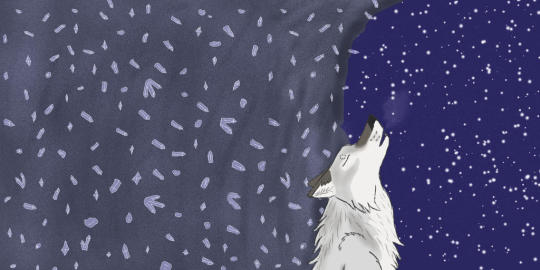
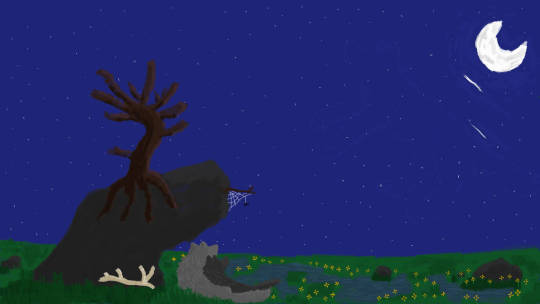
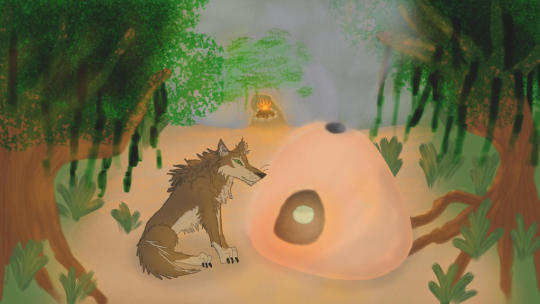
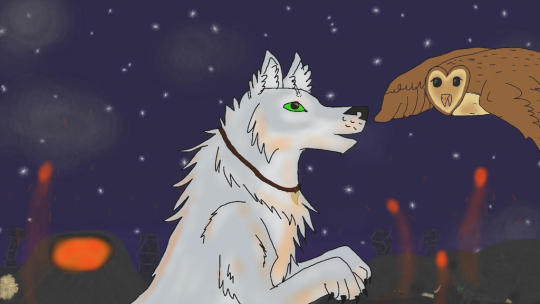

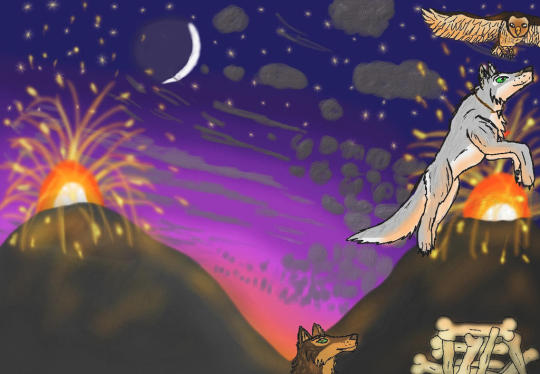
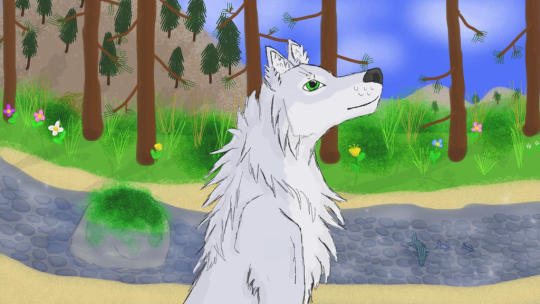
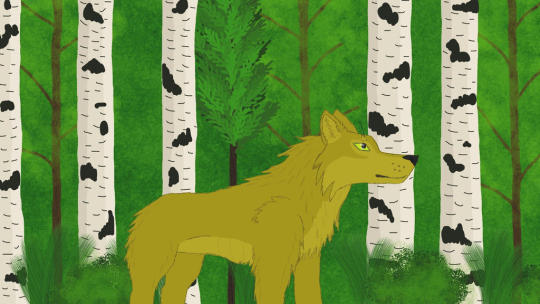
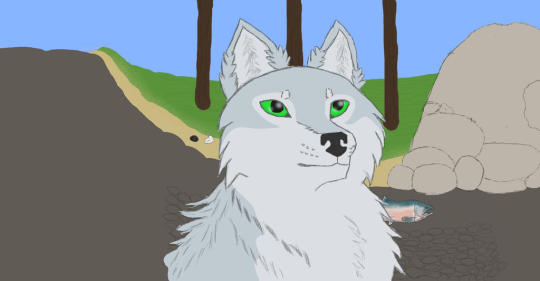
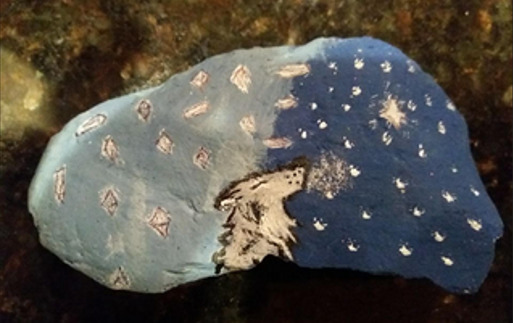
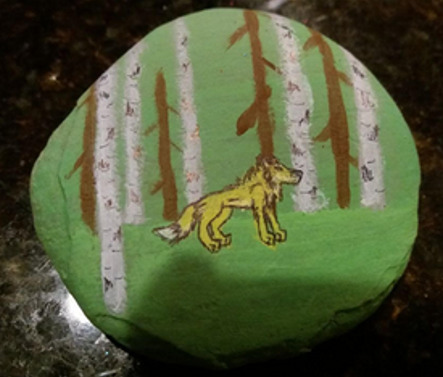
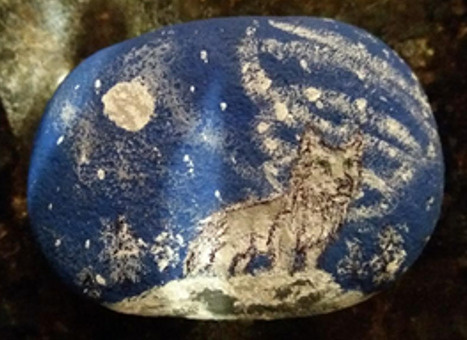
Some of my old WoTB art
#my art#wotb#wolves of the beyond#this shit is on my main blog#but i dug it up#and decided to post it here#and yes a few of these are wips or doodle type things. whatever lol#there's 3 painted rocks too#i honestly want to make more at some point. those were so fun to make#the howling wolf is the whistler (goat wolf tbh)#obviously there's faolan and heep the horrible asshat#the sark and her kiln with a turquoise matte glazed pot#the owl is gwynneth#twist is by faolan in one of the volcano ring pictures#edme is the black/dark grey wolf#she's curled up next to faolan in the scene from 'under the stars' on the slaan leat in book 3#i drew all of the main gnaw wolves and she's the one next to faolan#i think at some point i'll also draw the watch wolves. i love twist and winks#i don't rly know how to draw bears so well so i don't think i've ever drawn faolan with thunderheart#if i can figure out how to draw a decent looking bear i might draw her as well as other bear characters#owls for me sort of on par with wolves as far as knowing how to draw them comfortably. maybe a bit tougher to draw for me tho#the quality of some of these got screwed up but whatever#if i find the higher res versions i'll post them#i almost certianly don't have the original like. drawing program files anymore. that was years and years ago on a prev computer
8 notes
·
View notes
Text
Why are mystery novels the most rereadable books for me? Mystery/thriller shows being the most rewatchable too. Wouldn't you think they'd lose some of the ~mystery~?
5 notes
·
View notes
Text
It was me she didn’t know how to handle, me who was too soft and vulnerable. It frightened her that I didn’t know how to protect myself, because what kind of creature is born without this instinct?
— Charlotte McConaghy, Once There Were Wolves
8 notes
·
View notes
Text
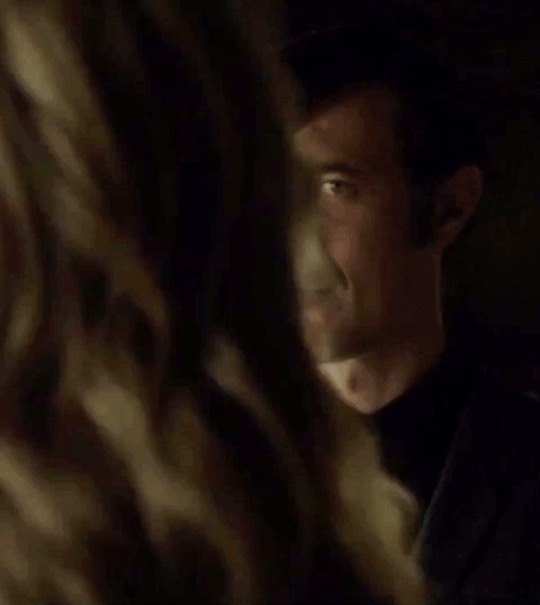


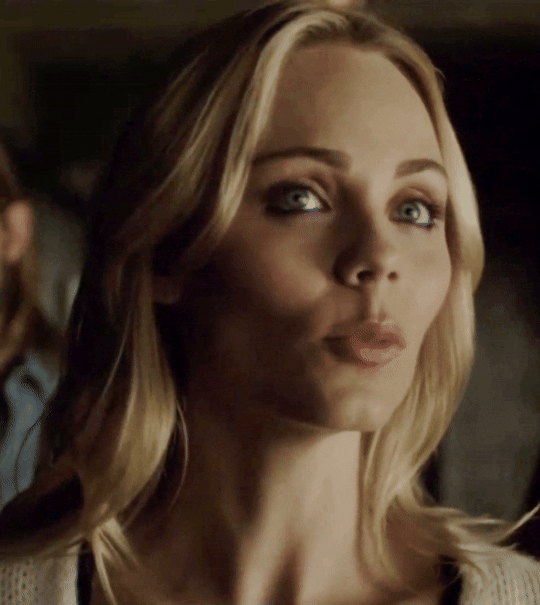
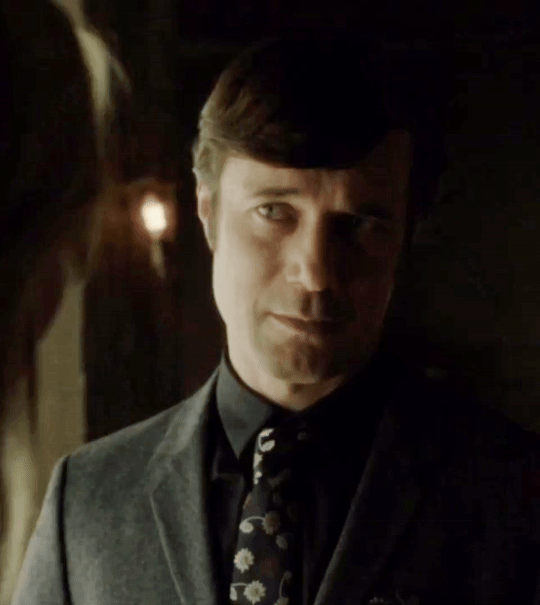

#they are siblings your honor
#bittenedit#bitten: the series#karl marsten#elena michaels#pascal langdale#laura vandervoort#my gifs#3x09#the way she looks to him first for approval when she's done speaking?#that little nod and him being the first to accept her as alpha?#that's a supportive big brother right there#and the fact that she looked at him when she said “wolves killed for not following”#you KNOW both of them were thinking about karl's father.#(if you know his story from the books)#for years all he wanted was to *belong* in a pack#even under all that bitterness#and right in front of him he is watching elena give him that. give *all of them* that.#he's so proud of her
12 notes
·
View notes
Text
alrighty, so I finally finished It Ends With Us by Colleen Hoover... and I don't think it's glorifying abusive relationships or anything? Quite the opposite, it pretty clearly goes on about how it's not okay to do the things the abuser is doing at all. It's showing how these situations can happen and how people choose to deal with them and work things out with each other through the complicated feelings and decisions that arise from them, basically. Wasn't the best book I've ever read but wasn't the worst one either, and I think the author's note at the end goes over her reasons for writing it and personal experiences related to it pretty well
#i dont know what any of her other books are about or like but#when i saw people on reddit talking about it it was like 'these books are ruining people's ideas of healthy relationships!!!" type stuff#anyways im glad ive finally read one and know what i actually think#probably wont read another though that was quite enough for me#wasn't too enamoured with the writing style nor any of the characters#and got very annoyed by the repeating motifs and themes or wtv haha#like ellen degeneres diaries and 'naked truths' and the sheer number of times characters either 'sucked in a rush of air/rushing breath'#or blew one out#they were all huffing and puffing constantly like a bunch of big bad wolves#it ends with us spoilers#p
9 notes
·
View notes